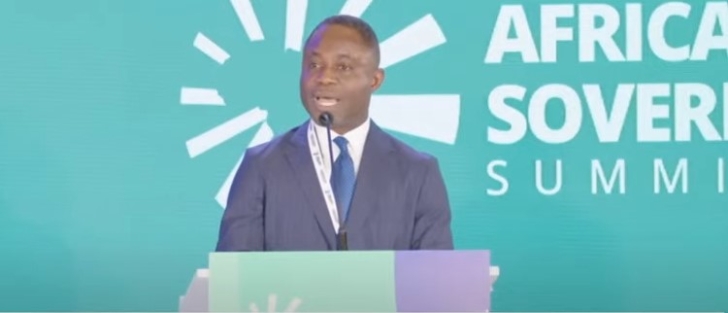
Akandoh urges African govts not to rely on donors but fund health from national budgets
Ghana’s Minister of Health, Kwabena Mintah Akandoh, speaking at the Africa Health Sovereignty Summit in Accra on Tuesday, criticised Africa’s reliance on external donors to fund national health systems.
He warned that no country can progress with a dependent health sector and said most health budgets on the continent are influenced more by donor funding limits than by the real needs of the public.
He, therefore, called for urgent reforms to treat health as central to development.
“A sick nation cannot develop,” Mr Akandoh said.
He urged African governments to prioritise health in their national budgets, even during financial constraints.
According to him, “health should not be an afterthought. It should not be funded by charity after other, more important sectors are handled.”
He said health sovereignty does not mean isolation from the global community. Rather, he described it as “the power to make binding decisions, to deploy our own resources, and to lead the systems that determine whether our people live or die.”
Mr Akandoh said Africa must build systems that are designed, owned, and driven by its citizens.
He mentioned Ghana’s National Health Insurance Scheme (NHIS), CHPS compounds, and support for local pharmaceutical production as examples of efforts aimed at building a reliable health system.
“These are not perfect,” he said, “but they declare a powerful truth: African problems demand African solutions.”
He questioned whether African countries had honoured their commitments, including the Abuja Declaration, which urged governments to allocate at least 15 percent of their national budgets to health.
“Sovereignty begins with honesty, the courage to measure ourselves against our own standards,” Mr Akandoh said.
He called on the summit to move away from making broad declarations without following them through. Instead, he said, African leaders must make direct, practical decisions to stop depending on external support to uphold their people’s dignity.
Mr Akandoh ended his remarks with a proverb: “He who has health has hope, and he who has hope has everything.”
He encouraged leaders to build systems where health is properly financed and serves as a foundation for peace, education, work, and fairness across society.
